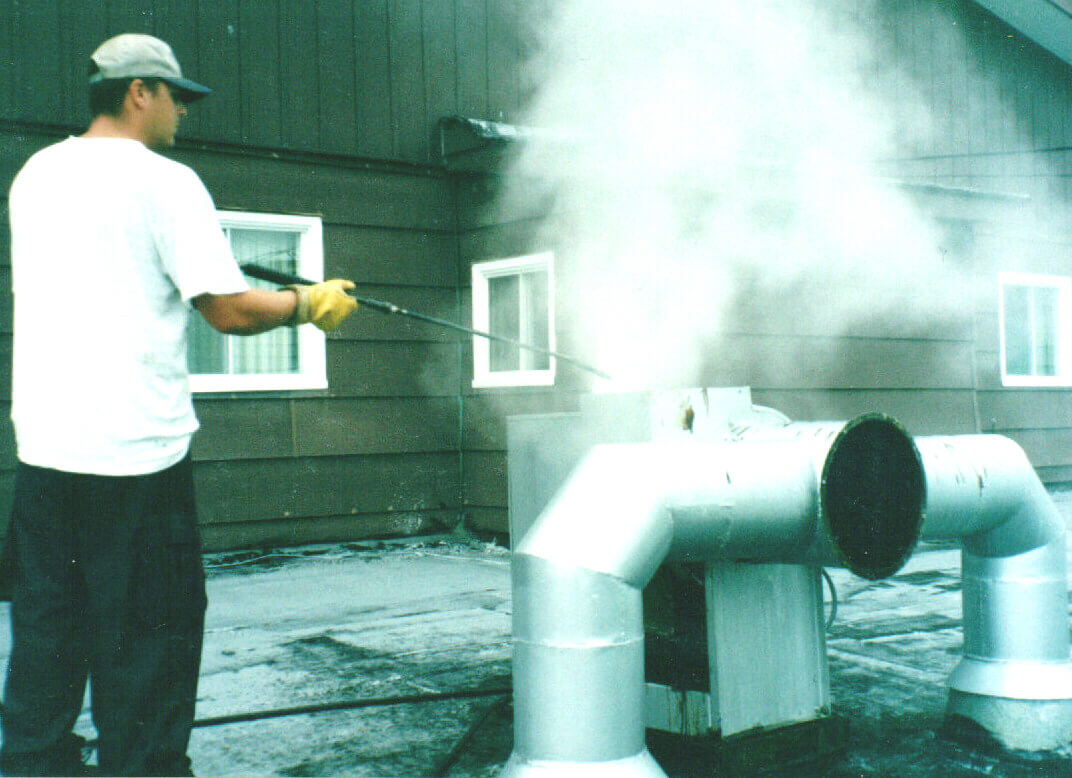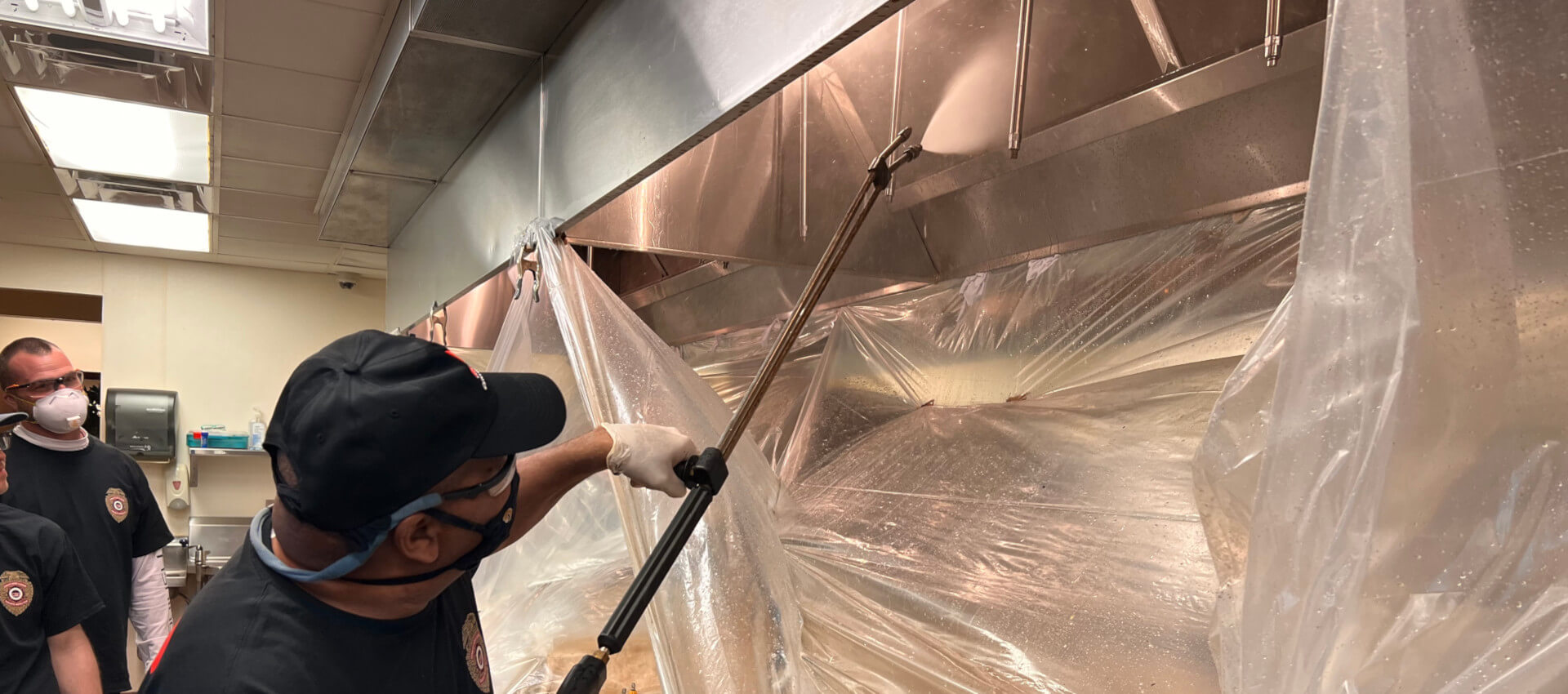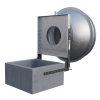
The Role of Hood Cleaning in Fire Prevention: Safeguarding Your Commercial Kitchen
The bustling environment of a commercial kitchen is full of delicious aromas, sizzling cooking equipment, and busy staff working to create memorable meals for their customers. Amidst all this activity, it’s easy to overlook the critical role hood cleaning plays in fire prevention. In this article, we’ll discuss how regular hood cleaning can help prevent fires in commercial kitchens, ensuring the safety of your staff, customers, and business.
The Connection Between Hood Cleaning and Fire Prevention
A commercial kitchen’s exhaust system, which includes the hood, filters, ductwork, and fans, is designed to remove grease, smoke, and other airborne contaminants produced during cooking. However, over time, these components can accumulate grease, posing a significant fire hazard.
Grease is highly flammable, and a fire can quickly spread through the exhaust system, causing extensive damage to your kitchen, and potentially the entire building. According to the National Fire Protection Association (NFPA), between 2014 and 2018, an average of 8,240 structure fires occurred in eating and drinking establishments per year in the United States, resulting in an annual average of $246 million in direct property damage. Many of these fires were directly related to cooking equipment and grease buildup in the exhaust system.
By regularly cleaning your kitchen hood and exhaust system, you can significantly reduce the risk of a grease fire, protecting your business and the people who depend on it.
Key Components of an Effective Hood Cleaning Strategy
- Adhering to Hood Cleaning Frequency Guidelines
The frequency of hood cleaning depends on the type of cooking equipment used, the volume of cooking, and the regulations set forth by the NFPA 96 and local authorities. Here’s a general guideline based on the type of cooking:
- High-volume cooking (e.g., 24-hour diners, fast-food restaurants, and charbroiling): Monthly cleaning
- Moderate-volume cooking (e.g., casual dining, hotel kitchens, and cafeteria-style facilities): Quarterly cleaning
- Low-volume cooking (e.g., churches, senior centers, and seasonal operations): Semi-annual cleaning
- Light-volume cooking (e.g., day camps, seasonal businesses, and snack bars): Annual cleaning
It’s essential to consult with a professional hood cleaning company to determine the appropriate cleaning schedule for your specific kitchen and to ensure compliance with local regulations.Thorough Cleaning of All Exhaust System Components
A comprehensive hood cleaning process should include the removal of grease and contaminants from the hood, filters, ductwork, and exhaust fans. This ensures that the entire exhaust system is clean and functioning optimally, reducing the risk of grease fires. Professional hood cleaning companies use specialized tools and equipment, such as hot water pressure washers and powerful degreasing solutions, to effectively remove grease buildup.
Regular Inspection and Maintenance of Cooking Equipment
In addition to regular hood cleaning, it’s essential to inspect and maintain your cooking equipment routinely. This includes cleaning deep fryers, griddles, ovens, and other cooking appliances that produce grease and smoke. By keeping your cooking equipment clean and in good working order, you can minimize the risk of fires originating from the equipment itself.
Staff Training and Awareness
Educating your kitchen staff about the importance of fire prevention and proper cleaning procedures is crucial. Ensure your team is trained to clean cooking equipment regularly, maintain a clean work environment, and know how to use fire extinguishers and other fire safety equipment. A well-informed staff can help prevent fires and respond quickly and effectively in the event of an emergency.
Compliance with Local and National Fire Codes
Complying with local and national fire codes is essential to ensure the safety of your commercial kitchen. These codes provide guidelines for the installation, maintenance, and inspection of kitchen exhaust systems, cooking equipment, and fire suppression systems. By adhering to these regulations, you can minimize the risk of fires and ensure that your business is prepared for inspections by local fire departments or insurance companies.
Installing and Maintaining Fire Suppression Systems
A fire suppression system is a crucial component of fire prevention in a commercial kitchen. These systems are designed to automatically detect and extinguish fires by releasing a fire-extinguishing agent, such as wet chemicals, foam, or carbon dioxide. Regular maintenance and inspection of your fire suppression system will ensure that it is ready to activate in case of a fire, providing an additional layer of protection for your kitchen.
Conclusion
Regular hood cleaning plays a vital role in fire prevention for commercial kitchens. By adhering to cleaning frequency guidelines, thoroughly cleaning all exhaust system components, maintaining cooking equipment, training your staff, complying with fire codes, and installing and maintaining fire suppression systems, you can significantly reduce the risk of fires in your kitchen. By taking these proactive steps, you can create a safer working environment for your staff, protect your customers, and safeguard your business from the devastating consequences of a kitchen fire.



